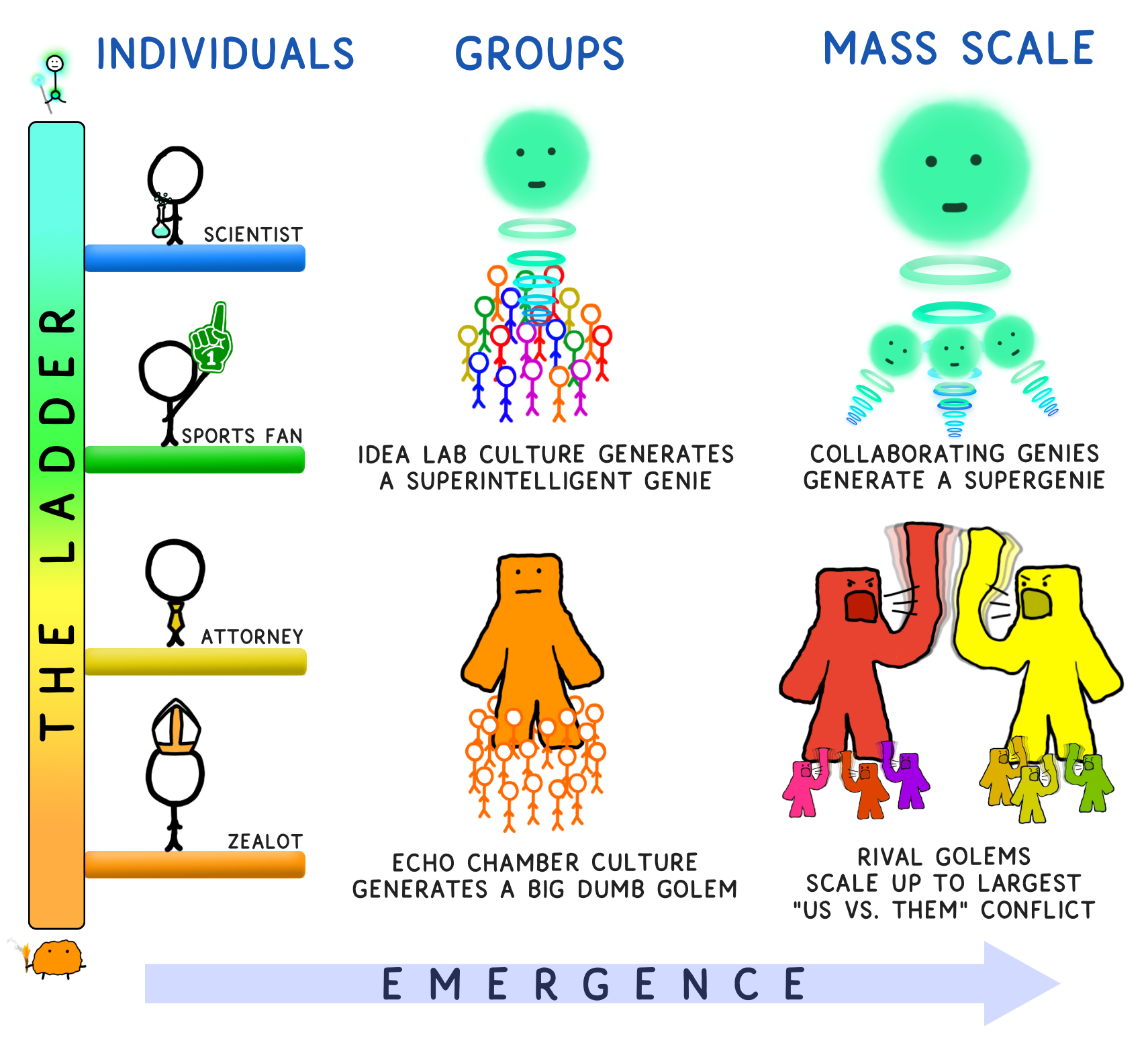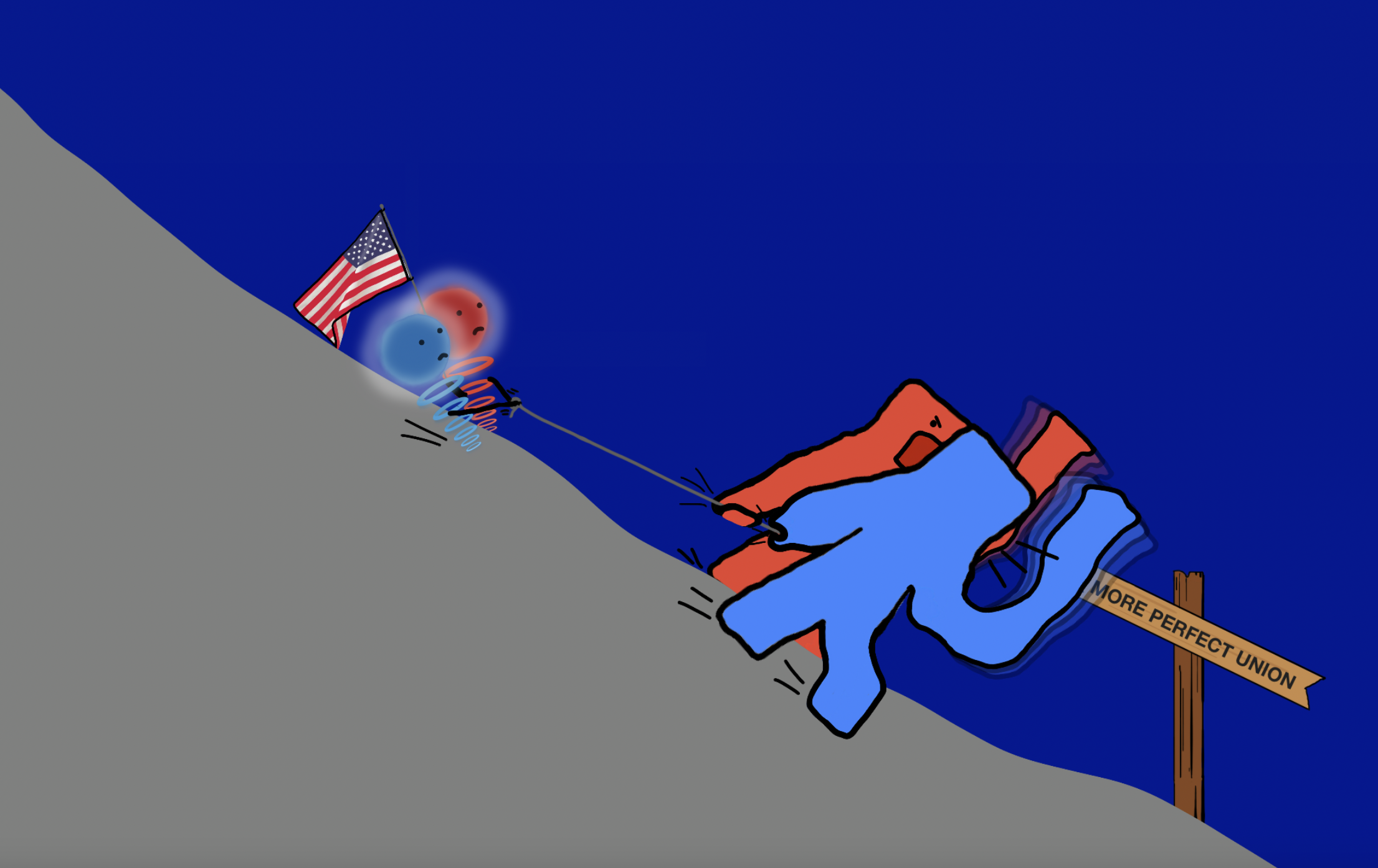On changing course
This is my last post inspired by the book, What’s Our Problem? a self-help book for societies. You can find all posts from this series here.
--
In his book, Tim Urban makes the case that hyper-polarization and many of the socio-cultural challenges we face today result from low-rung thinking amplified on a mass scale.

By presenting numerous examples, he shows that Echo Chamber culture has intensified to the point of pulling us backward. In essence, he argues that the polarization that appears to be a horizontal left-right, blue-red division in the US is actually a vertical division between Echo Chamber golems and Idea Lab genies.
The Lower Right and Lower Left both are illiberal. They’re both anti-science. They’re both hypocritical. They’re both authoritarian. They’re both bigoted. The political uniform that low-rung movements wear is just a façade under which lies a golem with all the trademark low-rung qualities.

After presenting his thesis of “what’s our problem,” he ends with ideas for how we might change course.
Step one is awareness and humility. Urban provides several new concepts and frameworks for thinking about what’s happening in our societies throughout the book. We can use them to become more self-aware.
For example, I’ve been reflecting on topics that bring out my inner attorney or zealot and how I can try to think more like a scientist. I’m also asking myself questions like: When does my Primitive Mind get triggered? Why do I believe what I believe and how are these beliefs tied to my identity? Do I truly understand the opposing point of view on a given topic or am I simply considering the least charitable version of it?
Step two is courage. Urban asks us to consider being courageous in various ways. “If everyone is expressing a certain political sentiment you don’t agree with or dehumanizing an out-group in a way you find distasteful, try to stay quiet and not participate.” Beyond that, he encourages us to start saying what we really think, in private and in public.
For me, that looks like participating in and creating environments that resemble Idea Labs rather than Echo Chambers. A few of us that have read the book have come together to have weekly discussions and debates on topics of interest. Even though we’ve all read the book, we don’t necessarily agree with every idea in it. And that’s the point.
I’ll leave you with the last paragraph from the book:
There was no shortage of ideas in this book, but I believe one stands out above all: Us vs. Them is always a delusion. The Story of Us isn’t a story of good guys vs. bad guys but one about the tug-of-war that exists within each human head, each community, each society. In this epic story, heading together toward an uncertain fate, there is no Them. Just one big Us.